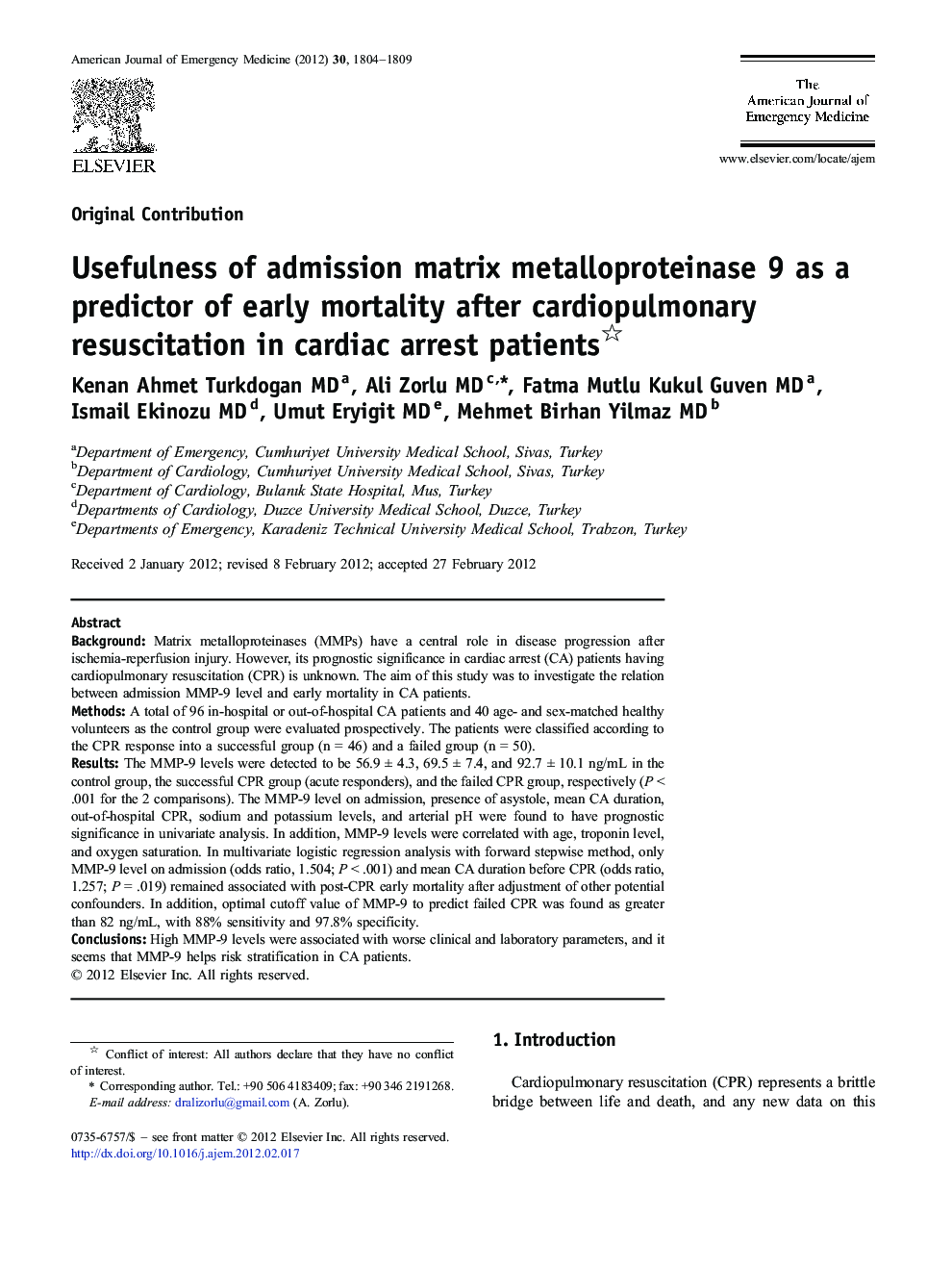| کد مقاله | کد نشریه | سال انتشار | مقاله انگلیسی | نسخه تمام متن |
|---|---|---|---|---|
| 3224898 | 1588135 | 2012 | 6 صفحه PDF | دانلود رایگان |

BackgroundMatrix metalloproteinases (MMPs) have a central role in disease progression after ischemia-reperfusion injury. However, its prognostic significance in cardiac arrest (CA) patients having cardiopulmonary resuscitation (CPR) is unknown. The aim of this study was to investigate the relation between admission MMP-9 level and early mortality in CA patients.MethodsA total of 96 in-hospital or out-of-hospital CA patients and 40 age- and sex-matched healthy volunteers as the control group were evaluated prospectively. The patients were classified according to the CPR response into a successful group (n = 46) and a failed group (n = 50).ResultsThe MMP-9 levels were detected to be 56.9 ± 4.3, 69.5 ± 7.4, and 92.7 ± 10.1 ng/mL in the control group, the successful CPR group (acute responders), and the failed CPR group, respectively (P < .001 for the 2 comparisons). The MMP-9 level on admission, presence of asystole, mean CA duration, out-of-hospital CPR, sodium and potassium levels, and arterial pH were found to have prognostic significance in univariate analysis. In addition, MMP-9 levels were correlated with age, troponin level, and oxygen saturation. In multivariate logistic regression analysis with forward stepwise method, only MMP-9 level on admission (odds ratio, 1.504; P < .001) and mean CA duration before CPR (odds ratio, 1.257; P = .019) remained associated with post-CPR early mortality after adjustment of other potential confounders. In addition, optimal cutoff value of MMP-9 to predict failed CPR was found as greater than 82 ng/mL, with 88% sensitivity and 97.8% specificity.ConclusionsHigh MMP-9 levels were associated with worse clinical and laboratory parameters, and it seems that MMP-9 helps risk stratification in CA patients.
Journal: The American Journal of Emergency Medicine - Volume 30, Issue 9, November 2012, Pages 1804–1809